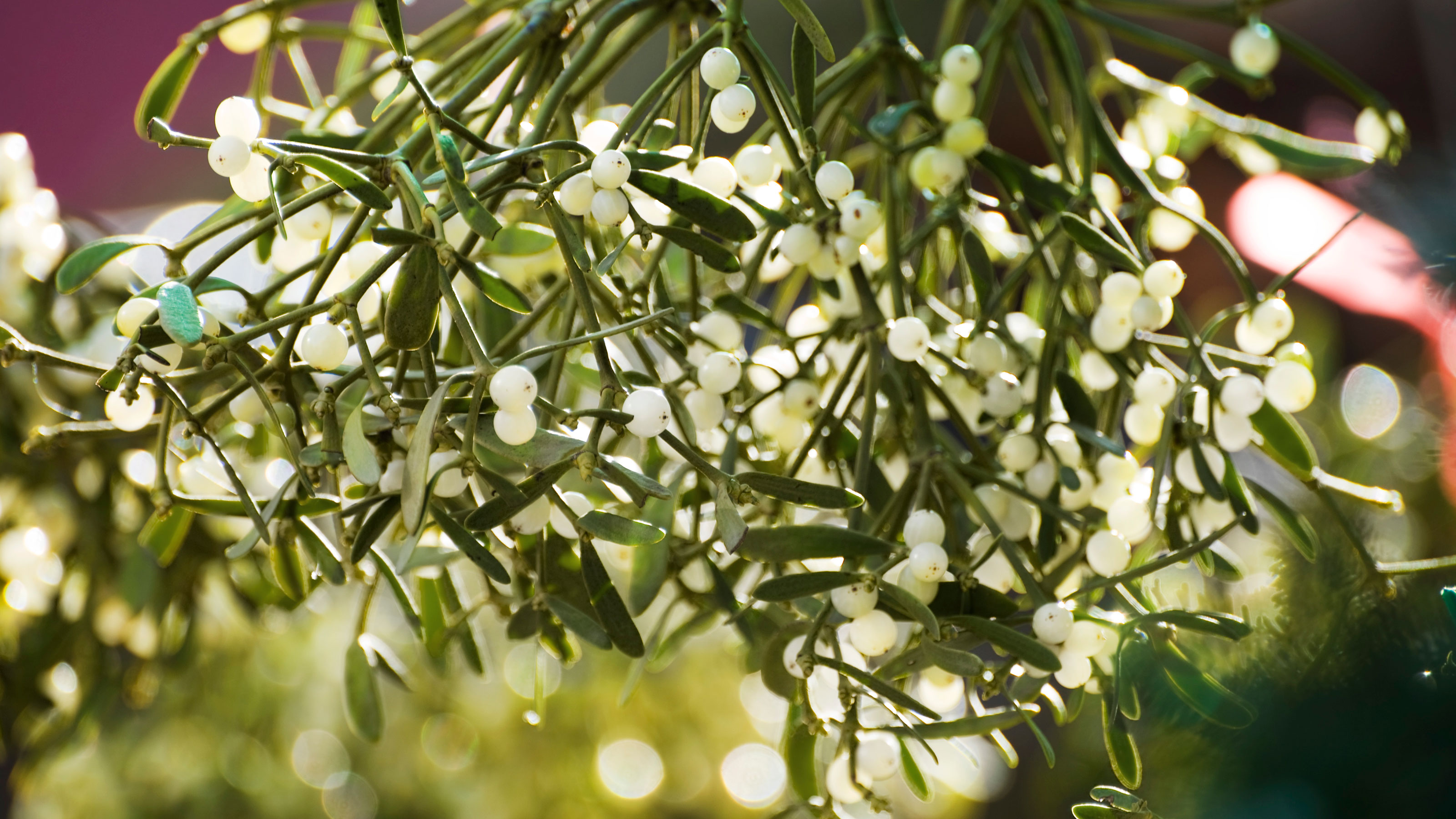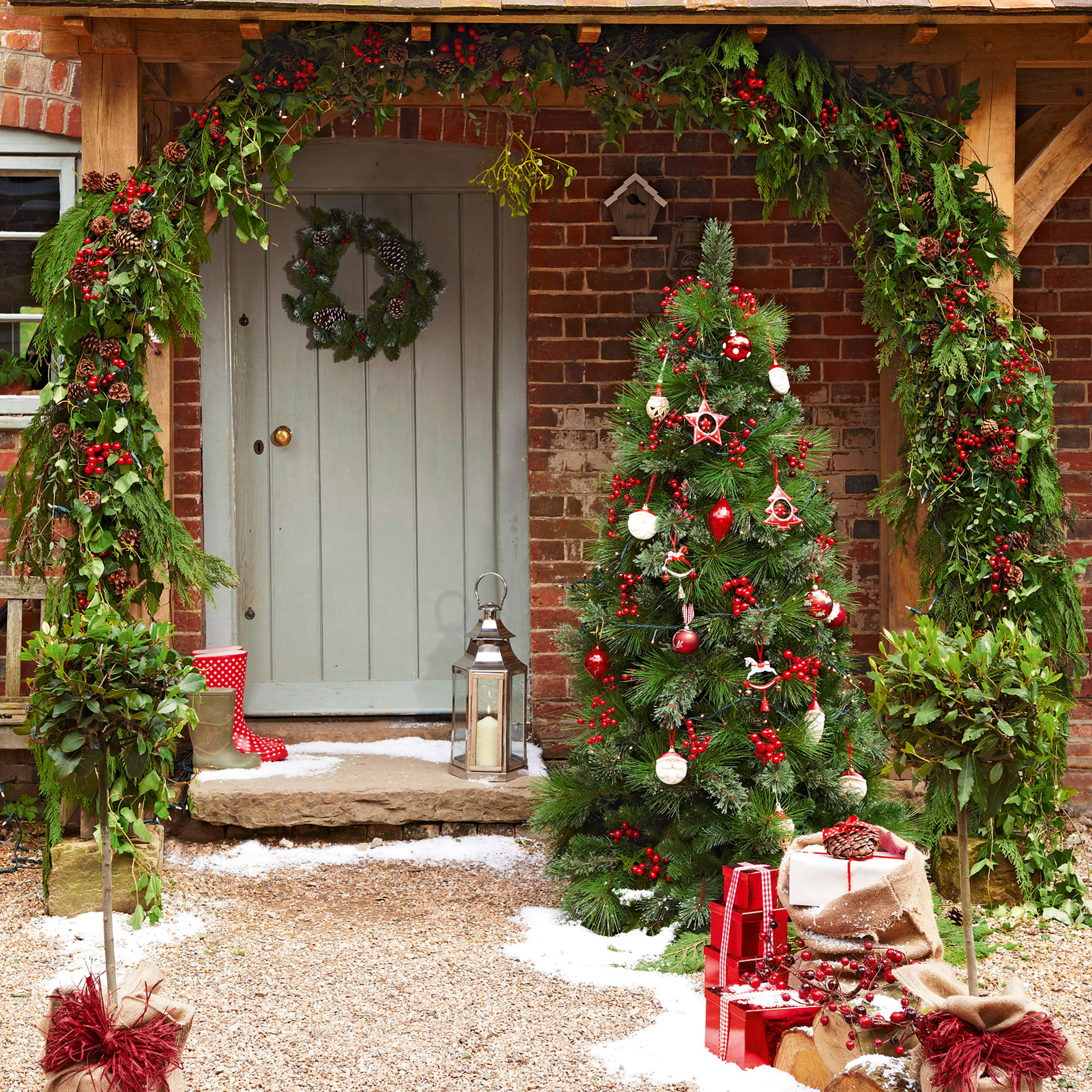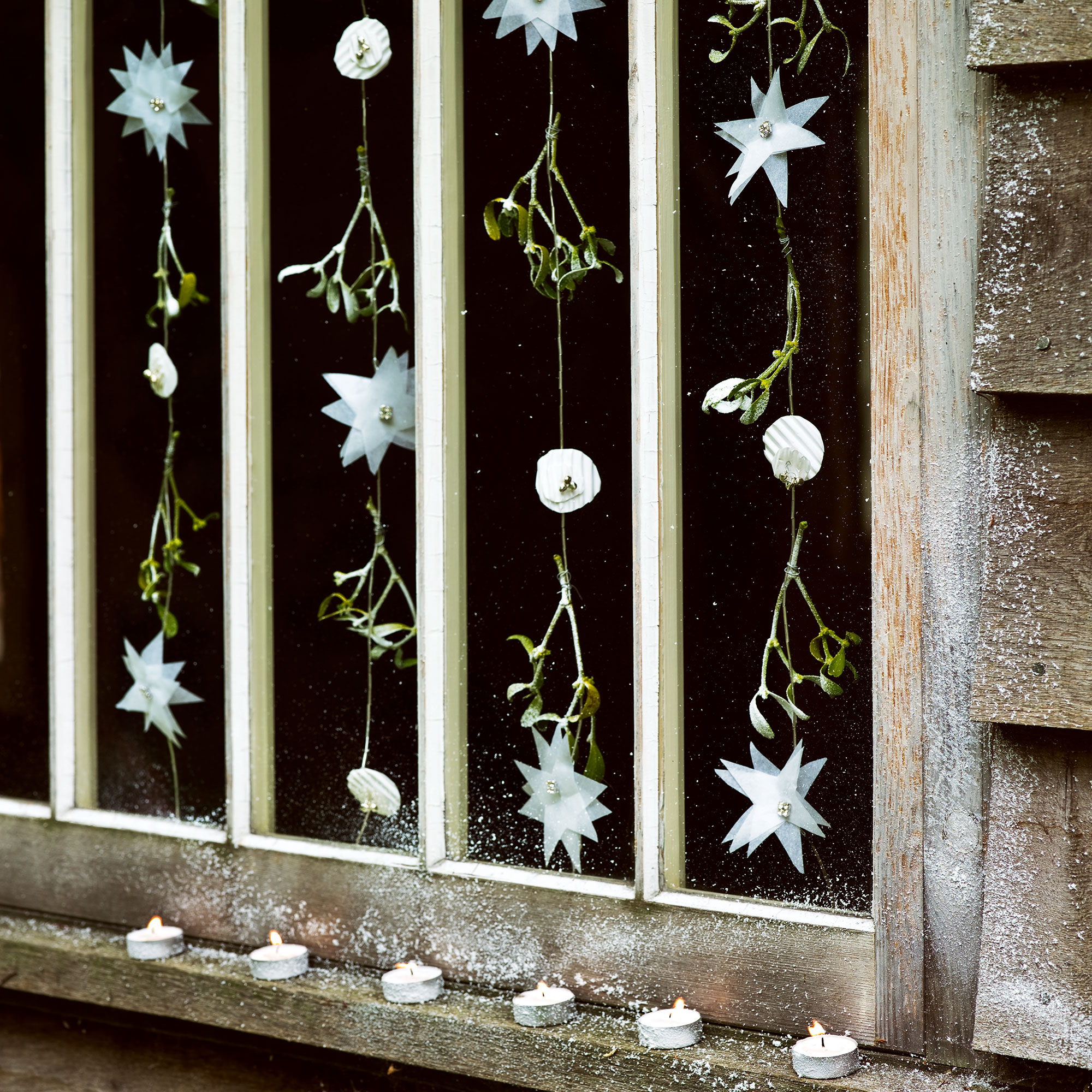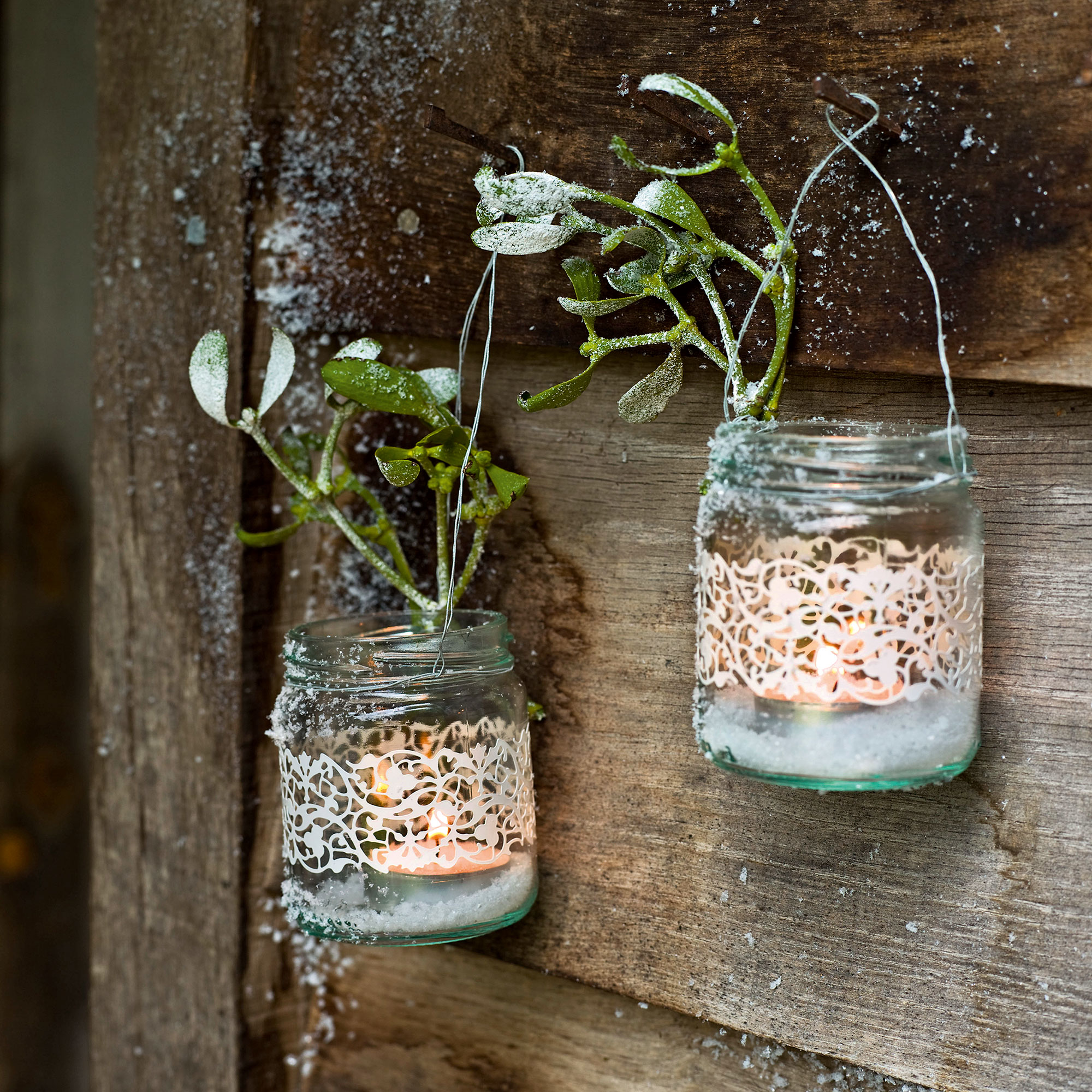Does mistletoe kill trees? Experts issue warning for those hanging mistletoe in their homes this year
Kissing under the mistletoe this Christmas? Be wary of the berries…


‘Does mistletoe kill trees?’ probably isn’t a question you’ve ever asked yourself. But if you’re planning on kissing under the mistletoe this Christmas, you should probably listen up as improper care and disposal of this festive favourite could lead to disaster for your garden.
Famous for its beautiful white berries and its romantic connotations, mistletoe is a great way to add some Christmas cheer to your home. However, mistletoe is a prime example of the notion that appearances can be deceiving. Not only is this festive plant poisonous to pets, but it can also pose a serious threat to your garden ideas.
Even if you’re careful and hang your mistletoe inside of your home and out of the way, dropped berries and improper disposal can give it the chance to make its way outside and onto your trees. And we’ve asked the experts to explain why you don’t want that to happen.
Does mistletoe kill trees?
A popular Christmas tradition, more and more people seem to be hanging mistletoe outside their front porch or on interior door frames. And while we’re a sucker for Christmas traditions at Ideal Home, we’re also a sucker for a happy and healthy winter garden. That’s why it’s important to share the warning associated with this festive favourite.

Why mistletoe is a danger to trees
‘Although mistletoe is often seen as beautiful because it's heavily associated with Christmas and the festive season, it is actually just a parasitic plant that grows on the branches of trees, extracting nutrients and water from the tree. This does mean that mistletoe can, in fact, harm and even kill trees,’ explains Steve Chilton, garden expert at LeisureBench.
‘When it extracts the tree's nutrients and water, this eventually weakens the tree, and therefore makes it more susceptible to the likes of diseases and pests, all while starving it of essential nutrients.’
Of course, most homeowners want to protect the trees in their gardens - which is why it’s so important to avoid mistletoe growth on your trees. It’s even more important if you have poplar, apple, or hawthorn trees in your garden, as these are its favourite type of host tree.
Get the Ideal Home Newsletter
Sign up to our newsletter for style and decor inspiration, house makeovers, project advice and more.
As mistletoe requires light and space to grow, you’ll rarely find mistletoe growing in overgrown gardens with a dense canopy. But if you have a large garden with wide open space and numerous trees, it’s a good idea to inspect your trees every year for potential growths of mistletoe to avoid such parasitic behaviour.

Steve is a passionate and knowledgeable garden expert with several years of experience within the field and has developed strong expertise for all things nature and plants. Steve is a keen educator and loves to share this knowledge with others. He strives to simplify complex garden practices and encourage eco-friendly gardening.

How mistletoe can spread to trees
Like many other plants, mistletoe hides its seeds in its berries. And while humans appreciate the sheer beauty of the white berries, birds such as the mistle thrush appreciate the fat-rich berries that pop up during the sparse winter months instead.
When they spot a bunch of mistletoe hanging on a porch or discarded on a compost pile, it won’t take these birds long to snatch up their opportunity to feast. They grab the berries in their beaks, head over to the nearest tree or bush, and rip the berries apart.
Within seconds, the berries are deposited in and around the tree, giving them a chance to germinate. Of course, this wouldn’t be a problem if they were any other type of seed. But mistletoe isn’t your average plant.
That’s why you should always hang your mistletoe indoors if possible - or at least in a position where birds can’t easily get to it. Then, when the festive season is over, make sure to dispose of it in your garden waste bin (as long as your local council allows this) or in a covered compost heap.

How to treat mistletoe growing on trees
If you do spot mistletoe growing on the trees in your garden, you may relish the fact that you have a festive favourite at your fingertips. And while we’d certainly suggest cutting off a few bunches for yourself and your family to use as a budget Christmas decorating idea, you should then work on getting rid of it as soon as you can.
Steve says, ‘Unfortunately, treating mistletoe effectively can be tricky to do by yourself. However, if you notice a small amount of mistletoe infestation, I recommend pruning back any affected branches. It's really important in this instance to ensure your pruning shears are cleaned after use on the mistletoe-infected branches.’
Yes, cleaning is key, as you don’t want to use diseased or infected shears elsewhere in your garden and spread it further. You may need an extra helping hand if your mistletoe infestation has gotten out of hand, though.
‘If you have a major mistletoe problem, I recommend contacting some professionals to effectively rid your tree of the infestation. They're likely to use some form of chemicals that could be dangerous if you try to use them yourself.’
FAQs
How long does it take mistletoe to kill a tree?
Generally, mistletoe doesn’t outright kill a tree. As a parasitic plant, it will essentially steal water and nutrients from trees, weakening them in the process.
This will leave it more susceptible to illness and disease, which could eventually lead to the death of the tree. This doesn’t happen overnight, though. It can sometimes take 10-15 years for mistletoe to weaken a tree so much that it succumbs to the disease.
Should you leave mistletoe on trees?
If you plan on growing your own mistletoe, you can leave mistletoe to grow on trees. However, it’s important to note that you’ll have to sacrifice the tree to do that.
Steve says, ‘If you want your trees to be healthy, then I generally wouldn't recommend leaving mistletoe on them at all. Having any mistletoe on a tree can be a major cause for concern, as it can spread really quickly, and the more mistletoe on it, the weaker the tree will get.’
‘I recommend treating any mistletoe quickly in order to prevent future harm and maintain a healthy tree.’
Is mistletoe harmful to the tree?
Mistletoe relies on a host tree to survive, and in doing so, it will steal all essential nutrients and water from the tree. This is harmful to the tree itself, as the mistletoe will leave it incredibly weak and vulnerable to more diseases.
So, keep your mistletoe away from the birds and your garden this Christmas!

Lauren Bradbury has been the Content Editor for the House Manual section since January 2025 but worked with the team as a freelancer for a year and a half before that. She graduated with a Bachelor’s degree in English and Creative Writing from the University of Chichester in 2016. Then, she dipped her toe into the world of content writing, primarily focusing on home content. After years of agency work, she decided to take the plunge and become a full-time freelancer for online publications, including Real Homes and Ideal Home, before taking on this permanent role. Now, she spends her days searching for the best decluttering and cleaning hacks and creating handy how-to guides for homeowners and renters alike, as well as testing vacuums as part of her role as the Ideal Home Certified Expert in Training on Vacuums, having spent over 110 hours testing different vacuum models to date!
-
 5 signs you’ve taken decluttering too far — and how you can pull yourself back, according to organisation experts
5 signs you’ve taken decluttering too far — and how you can pull yourself back, according to organisation expertsYou might have to start resisting the urge to purge
By Lauren Bradbury
-
 What is the Party Wall Act 3m rule and is it something you should be worried about? This is what the experts say
What is the Party Wall Act 3m rule and is it something you should be worried about? This is what the experts sayDon't get caught off-guard by the Party Wall Act 3m rule — our expert guide is a must-read
By Natasha Brinsmead
-
 Shoppers can’t get enough of The Range’s lemon tree, but I’ve found an even cheaper bestseller at B&Q - it’s perfect for a Mediterranean look
Shoppers can’t get enough of The Range’s lemon tree, but I’ve found an even cheaper bestseller at B&Q - it’s perfect for a Mediterranean lookWelcome the summer with this glorious fruit tree
By Kezia Reynolds